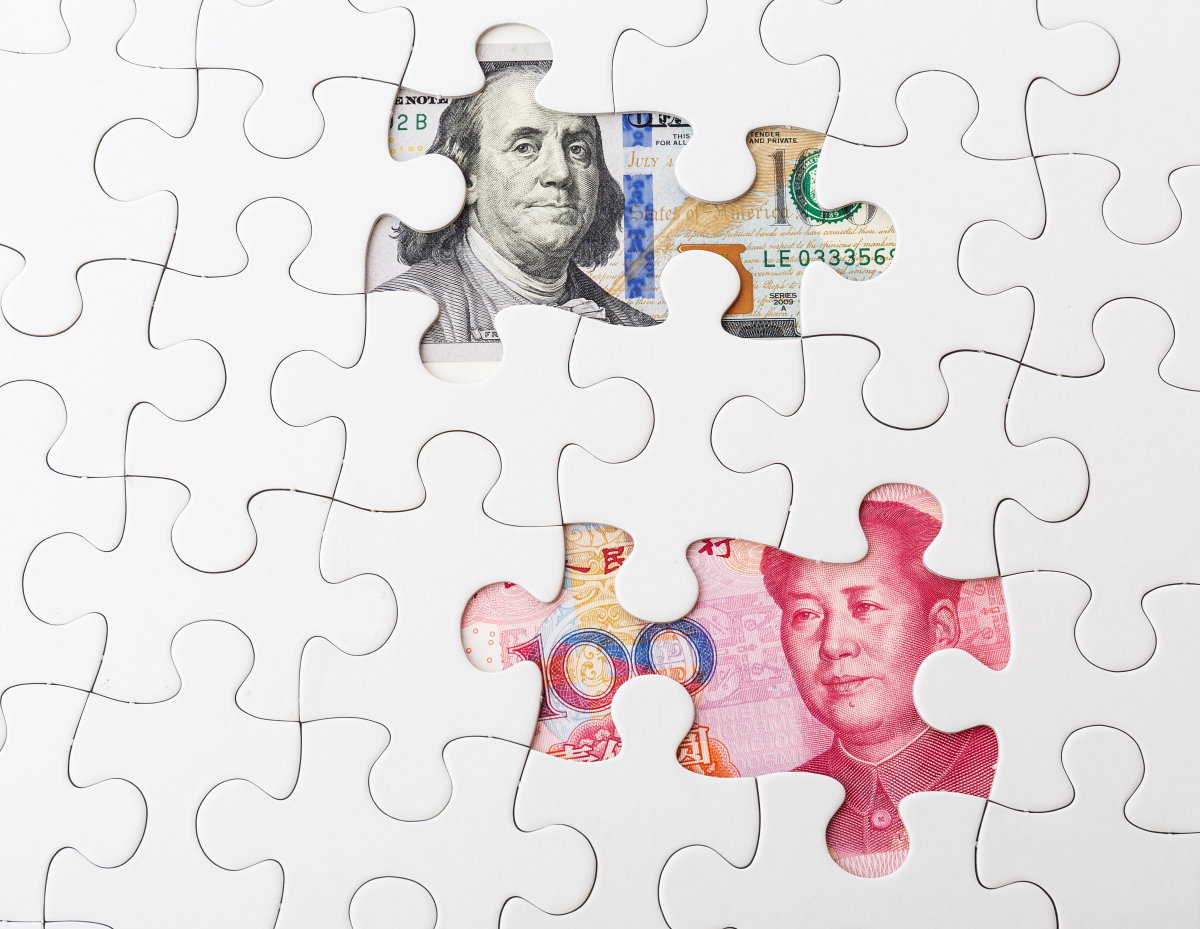The world of tomorrow

The world we know today is far from perfect, contrary to what we would like it to be. Extreme and devastating natural events, migration crises, and starvation – just to name a few – are realities we have lived with for quite some time. The pandemic caused by Covid-19 and, more recently, the Russian invasion of Ukraine have not only exacerbated the existing problems but also created a series of other negative consequences for the day-to-day lives of the world’s population in several areas, one of the most affected, unsurprisingly, being the economy. Until then, we were able to register advances such as the decrease in the number of people at risk of poverty or in extreme poverty – now, the world is suffering a huge setback. The feeling of insecurity has returned (if it ever left us…), leaving us to wonder what the world of tomorrow will be like.
If on one side we have China in the big picture as a great power, increasing its power, control, and domination of the global economy; on the other hand, we also need to take into account the increasing world economic dependence on the other great powers.
In order to help us answer questions related to the new world – economically speaking – we had the opportunity to speak with Professor Arnd Jurgensen, from the Department of Political Science at the University of Toronto, who has International Financial Politics as one of his main areas of interest.

Milénio Stadium: It’s known that the world’s great powers exert major influence over the vast majority – if not all… – of the countries of the world. But taking into account recent events such as the War in Ukraine and the pandemic caused by Covid-19, do you consider that this reality is even more magnified?
Arnd Jurgensen: Over 2000 years ago a greek historian described the international system as one in which “the powerful do as they wish and the weak suffer what they must”. IR scholars in the “realist” tradition argue that this has never changed. What has changed is the number of “great powers”, from several, up to WW2, to two during the Cold War, to one during the “unipolar moment” after the collapse of the USSR. The rise of China threatens to make it two again, which the U.S. would very much like to avoid. Russia, by almost all measures other than military (esp. nuclear) power, is not any longer a “great power” but one that in the larger contest with China, I believe the US would like to neutralize/downgrade to make it less of a partner for China. In this sense, the war in Ukraine is a proxy conflict between these larger powers. As the saying goes: “when elephants fight, the grass gets trampled”. Ukraine is the grass.
MS: China is one of the main countries getting ahead and is now beginning to force the world to depend on it, economically but not only. Between 1999 and 2019 its GDP increased more than 11 times and never below 6%, which confirms the impressive pace at which its economy has been growing. How did we get to this point?
AJ: The way you phrased this question is misleading. China’s growth has been spectacular over the last two decades, lifting some 800 million of its citizens out of poverty but the idea that China is “beginning to force the world to depend on it” has it backward. The world, especially its Multi-national Corporations viewed the “opening” of China to direct foreign investment as an enormous opportunity to take advantage of cheap, well-trained and disciplined labour (and no independent labour unions). It’s the expansion of their supply chains to include China that has produced these impressive gains and forced the world to depend on China. The government of China will obviously use this situation to its advantage.
MS: Could we be moving away from the concept of multipolarity/multilateralism and see the struggle for hegemony – especially from China, as we were talking about earlier – gaining more and more strength?
AJ: The relative decline of the U.S. and the rise of China are moving the world in the direction of multipolarity not away from it. The fact that China was not able to restrain Russia’s invasion of Ukraine or to impose its preferences on states like India suggests that it does not yet exercise regional hegemony and that we are thus not in a bi-polar but a multi-polar order.
MS: Can we say that this was also Putin’s major goal in invading Ukraine? If so, do you think he is being/will be successful?
AJ: Putin’s decision to invade Ukraine was largely defensive and motivated at least in part by the expansion of NATO to the Russian border. It was also a substantial blunder as the ongoing conflict and lack of clear success by Russia continue to demonstrate. Russia, as Mr. Putin has stated repeatedly, would prefer a multipolar order to US dominance or a US-China Cold War in which it would become a pawn.
MS: Will the next step be the “handshake” with China?
AJ: If you mean by this a closer relationship between China and Russia, we’re already there. China’s further expansion depends on the success of its Belt and Road initiative to integrate the Eurasian Continent economically and to link it to the Middle East and Africa. Russian territory plays an obviously crucial role in this project and the economies of the two countries are also complementary. Many expected the Ukraine crisis to push the U.S. to shake hands with China to isolate Russia, but the opposite seems to have happened.
MS: What consequences can we expect not only from interdependence but – and above all – from the rivalry that exists between the great powers?
AJ: At the moment the Biden administration is doing its best to “decouple” from China above all by cutting it off from US semiconductors involved in the production of just about everything. If successful this will be very disruptive to all economies around the world, esp. those in East Asia and Europe.
MS: If Europe boosted and made its resources and knowledge more efficient, could it obtain any benefit from the new direction the economy is starting to take? Meanwhile, what posture should the European continent – and more specifically the European Union – take to survive this war of empires?
AJ: The prospects for Europe and especially Germany, in all of this are bleak at best. They are being simultaneously cut off from their cheapest sources of energy and (through the attempts to isolate China) their most promising export markets. It’s difficult to imagine Europe backing away from the US and refusing to go along with this decoupling but it is also difficult to imagine a prosperous Europe if they don’t.
MS: In what concerns the economy, are we heading towards a New World Order… or will it be more of a “disorder”? How will the “world of tomorrow” be?
AJ: At the moment the likelihood of disorder seems far greater than a new global order. I would argue, however, that human survival on this planet depends on global cooperation through the only set on institutions available to us to facilitate such cooperation: the UN. That it along with diplomacy more generally, has been largely sidelined in dealing with the Ukraine crisis is tragic.
Inês Barbosa/MS








Redes Sociais - Comentários